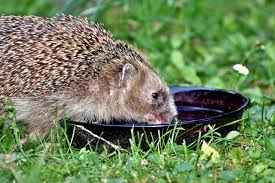As summer arrives in the Northern Hemisphere, the relentless heat waves can be a serious threat to animals, both pets and strays. High temperatures can lead to dehydration, heatstroke, and even death. It’s our responsibility to ensure the safety and well-being of our furry and feathered friends during these scorching months.
Protecting Pets from the Heat
Provide Plenty of Water One of the simplest yet most crucial steps is to ensure that pets have constant access to fresh, cool water. Dehydration can set in quickly during hot weather, so keep their water bowls filled and place them in a shaded area.
Create Cool Shelter Make sure your pets have a cool place to escape the heat. If they are outdoors, provide shaded areas or bring them inside during peak heat hours. Using fans or air conditioning can help keep the indoor environment comfortable.
Limit Exercise Exercise your pets during the cooler parts of the day, such as early morning or late evening. Avoid vigorous activities that can lead to overheating. Shorter, more frequent walks are better than long, strenuous ones.
Grooming Regular grooming helps remove excess fur and allows better air circulation on your pet’s skin. However, avoid shaving their coats entirely, as fur also protects against sunburn.
Helping Stray Animals
Water Stations Place bowls of water in areas where stray animals frequent. Change the water regularly to keep it clean and cool. If possible, add ice cubes to keep the temperature down.
Feeding Provide easily digestible and hydrating foods for stray animals. Wet cat and dog food, watermelon, cucumbers, and leafy greens can help keep them hydrated. Avoid feeding them salty or processed foods, which can lead to dehydration.
Creating Shelters Set up makeshift shelters using cardboard boxes, old crates, or pet carriers lined with cool, damp towels. Place these shelters in shaded areas or under trees. If possible, elevate the shelters to allow air to flow underneath and keep the ground cool.
Specific Tips for Different Animals
Birds Provide bird baths and keep them filled with clean water. Place the baths in shaded areas to keep the water cool. Offer fresh fruits like berries and grapes, which provide hydration.
Cats and Dogs For stray cats and dogs, place water and food in shaded, accessible areas. Create shaded spots with tarps or umbrellas if natural shade is unavailable. For cats, consider using clay or ceramic bowls as they stay cooler than plastic.
Stray Cows Cows need large amounts of water, so set up large troughs or buckets in shaded areas. Provide access to hay and avoid feeding them grains during peak heat, as grains generate more body heat.
Monkeys and Raccoons These animals are often seen in urban areas. Place water bowls on rooftops or elevated areas where they can easily reach. Avoid feeding them sugary snacks or human food, which can harm their health.
Generating Awareness
Community Engagement Engage with your community to raise awareness about the importance of protecting animals from heat. Organize workshops, distribute flyers, and use social media to spread the word. Encourage local businesses to participate by placing water bowls outside their premises.
Volunteer Programs Form volunteer groups to regularly check on stray animals and replenish water and food supplies. Partner with local animal shelters and rescue organizations to maximize your efforts.
Public Announcements Work with local authorities to make public announcements about animal safety during heat waves. Schools, community centers, and places of worship can be great platforms for spreading awareness.
Creating Shelters at Home
Roof Top and Backyard Shelters You can easily create shelters on your rooftop or in your backyard using materials like old blankets, cardboard, and wooden crates. Ensure the shelters are well-ventilated and shaded. Place water and food nearby to attract animals.
Street Pavements Set up water stations and small shelters along pavements in your neighborhood. Use reflective materials to minimize heat absorption and keep the shelters cool.
Treating All Animals with Kindness
Remember, animals generally only attack when they feel threatened or desperate. By providing them with water, food, and shelter, you reduce their stress and the likelihood of aggressive behavior. Treating all animals with kindness and compassion is essential, especially during extreme weather conditions. Small acts of care can make a significant difference in their survival and well-being.
Summers can be brutal, but with a little effort and compassion, we can ensure the safety and well-being of our pets and stray animals. Providing water, creating shelters, and raising awareness are simple yet effective ways to help. By working together, we can make a significant impact and show that kindness transcends species.
